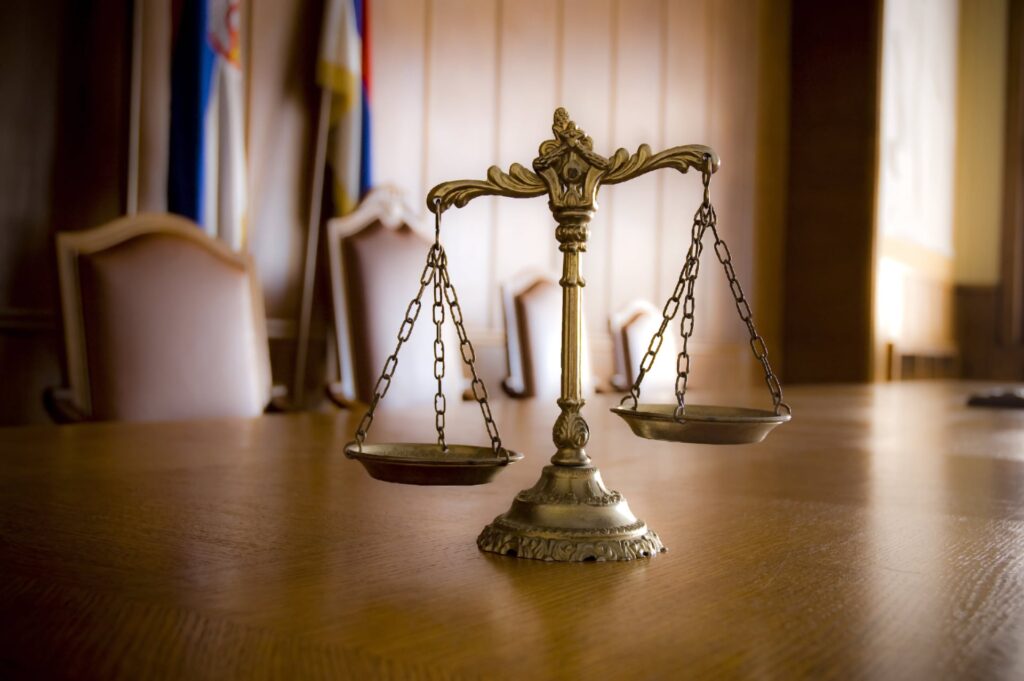When you take legal action after getting hurt, you’re essentially asking to be made whole again. That might involve getting money to cover medical expenses, lost income, property damage, or whatever the injury has cost you. To receive that compensation, you still have to show that the other person’s conduct caused the harm.
Some types of damage are there to help you get back on your feet. Others are meant to punish someone whose actions were especially harmful. This is usually reserved for cases involving reckless behavior or something more intentional. Understanding how these two types of damages operate can impact the outcome of your case.
At Armada Law, we walk you through those differences and help you fight for everything you’re owed. After reviewing your case, we can provide a clear explanation of your personal injury damages, helping you understand your legal path. After reviewing your case, we can provide you with a detailed personal injury damages explanation so you understand your legal options.
Understanding the Role of Damages in Personal Injury Law
Getting hurt because of someone else’s negligence can change everything. You might be dealing with hospital bills, missing work, constant pain, or worse. The legal system provides a way for people to recover from losses. Still, unless you’ve experienced it before, the process can feel confusing, especially when legal terms like compensatory damages and punitive damages start popping up.
You may have heard those words already. Maybe your insurance company mentioned them, or someone told you what you “should” be entitled to. Understanding them in real-world terms, not just legal jargon, is what actually helps you decide what to do next.
So let’s break it down. What are the types of damages in personal injury cases? Why do they matter? What’s the difference between compensatory and punitive damages? Whether you’ve already filed a claim or are still figuring things out, knowing these answers can help you take the next step with confidence. As a personal injury law firm in South Carolina, we help people sort through this every single day. Our goal is to ensure you don’t settle for less than you deserve.
What Are Compensatory Damages?
Let’s start with the more common kind of damages in personal injury cases. Compensatory damages are the central issue in most personal injury cases. If you’ve been hurt because of another person’s negligence, these damages are meant to reimburse you for what you’ve lost. This may include medical bills, repair costs, and emotional distress, all of which fall under this umbrella.
There are two categories of compensatory damages. The first is called economic damages. These are the straightforward ones, such as lost wages and hospital bills. If you have a dollar amount attached to it, it’s usually considered economic.
The second group is non-economic damages. These are harder to measure but just as real. Pain that doesn’t show up on a scan. Anxiety that keeps you up at night. Common examples of such damages include emotional distress, anxiety, depression, and a general loss of enjoyment in life.
In a typical car accident case, you might deal with both. Say someone runs a red light and hits your vehicle. You break a bone, miss three weeks of work, and now can’t play your favorite sport anymore. In that situation, compensatory damages awarded might include everything from medical bills to the cost of physical therapy to compensation for the frustration of being sidelined from your hobbies.
Courts use compensatory damages to balance the scales. Their purpose isn’t to punish the person who caused the harm, but to restore the injured party as much as possible. That’s an important distinction, especially when we get into the following type of damage.
What Are Punitive Damages?
Now let’s talk about something a little different, and also more serious. Punitive damages aren’t about paying you back for what you lost. They’re about punishing the person or entity that caused the harm. Think of them as consequences for behavior that goes far beyond regular negligence. Punitive damages come into play when the court finds that the defendant’s actions were especially dangerous, reckless, or intentional.
To be clear, not every case qualifies for this kind of outcome. In fact, punitive damages are more challenging to get. Courts award punitive damages only in specific situations. A simple mistake or accident won’t cut it. There has to be proof of gross negligence or intentional harm.
A good example would be a trucking company that knowingly forces drivers to skip mandatory rest breaks, resulting in a crash. Or a corporation that hides safety defects in a product to avoid a recall. In these kinds of situations, the court may choose to award punitive damages not only to help the victim but to send a strong message.
In South Carolina, there are some legal limits on these damages. The law generally caps them at three times the amount of compensatory damages or $500,000, whichever is greater. However, exceptions exist, especially if there’s evidence that the defendant acted intentionally, tried to cover things up, or was motivated by financial gain.
Our law firm takes this seriously. If your case involves this kind of behavior, we know how to present the proper evidence to pursue exemplary damages. Not every injury claim requires this path, but when it’s appropriate, you should never hesitate to ask the court to award punitive damages.
Key Differences Between Compensatory and Punitive Damages
Distinguishing punitive and compensatory damages isn’t always straightforward. Some people mix them up because they’re both discussed as part of a lawsuit. However, their purpose, their requirements, and their effect on your case are entirely different.
The biggest difference lies in what each type is trying to accomplish. Compensatory damages are about recovery. Replacing what was lost. Punitive damages exist to punish and deter.
Compensatory damages rely on your actual losses. All those costs can be calculated and presented to the court. Punitive damages rely on showing how extreme or outrageous the defendant’s actions were. That takes more than just receipts. It takes evidence that goes to the heart of intent or recklessness.
Another key point is how often they’re awarded. Most personal injury cases involve compensatory damages. That’s the baseline. On the other hand, punitive damages are the exception, not the rule. Courts are cautious when it comes to issuing punishments like this. They require a higher standard of proof and more legal hurdles.
When clients ask us about compensatory vs punitive damages, we make sure they understand this isn’t about choosing one over the other. It’s about knowing which applies to your case and fighting for every form of justice the law allows.
How Armada Law Helps You Pursue the Right Damages
There’s no one-size-fits-all approach to personal injury. Every case has its own facts, its own complications, and its own path to recovery. That’s why it’s critical to work with a personal injury lawyer who understands how these damages work, not just in theory, but in courtrooms and settlement negotiations across South Carolina.
We’re not a firm that pushes clients toward quick settlements just to close the file. We dig deep into the details. Who was at the party? What exactly happened? What losses are you facing now, and what challenges will you face in the months or years to come?
Some clients come to us after a car accident. Others after slipping in a store or suffering due to a defective product. No matter the cause, we look at the full scope of harm. Every piece matters when it comes to determining what you may be entitled to under the law.
That includes examining whether punitive and compensatory damages both apply. If we find that someone’s negligence was especially outrageous, we take steps to document that. We track down witness statements. Pull records and consult experts. Then we present the evidence in a way that speaks to the court’s standard for awarding punitive damages.
We don’t cut corners when it comes to calculating punitive damages either. Courts want a fair punishment, so we try to balance the seriousness of the defendant’s actions with the impact those actions had on your life.
Making Sense of Your Legal Options with Armada Law
The legal process to recover compensation can be overwhelming, especially when you’re still trying to recover from the actual injury. You’re dealing with pain, paperwork, insurance phone calls, missed workdays, and now you’re supposed to understand the difference between general damages and exemplary damages?
That’s where we come in. It’s our job to handle the legal burden while you focus on healing. Our team guides you through every step, from the first conversation to the last negotiation. We don’t speak in riddles or legal codes.
Whether you’re pursuing compensation for actual damages or asking the court to award punitive damages, we’ll help you make a strong case. We’ll explain the options, set realistic expectations, and build a strategy that puts your interests first.
If you’re reading this and wondering whether you have a case or what the next step looks like, you don’t have to guess. Just reach out. We offer a free consultation with our personal injury lawyer to walk you through your rights, your options, and how we can help.






